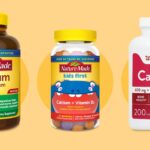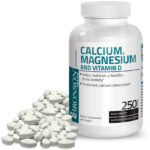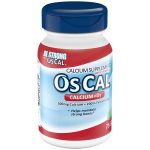Dietary Supplements: 5 Types, Benefits, Regulations and Safety

A dietary supplement is defined as a manufactured product intended to supplement one’s diet. A supplement can provide nutrients either extracted from food sources or that are synthetic in order to increase the quantity of their consumption. Dietary supplements come in a variety of forms, including tablets, capsules, gummies, and powders, as well as drinks and energy bars. Popular supplements include vitamins D and B12; minerals like zinc, calcium, and iron; herbs such as echinacea and garlic; and products like glucosamine, probiotics, and fish oils.
Approximately 77% of the US adult population use supplements and the global supplement market is predicted to reach a value of $216.3 billion by 2026. FDA regulates both finished dietary supplement products and dietary ingredients. By law, it is illegal to manufacture or market dietary supplement products that are adulterated or misbranded and FDA has regulatory authority to remove such products from the marketplace. Manufacturers and distributors of dietary supplements and dietary ingredients are also prohibited from marketing products that are adulterated or misbranded.
What are the 5 types of supplements?
There are numerous types of dietary supplements available on the market, each designed to provide specific benefits. While it’s difficult to categorize all supplements into five distinct types, here are five broad categories that encompass many popular supplements:
1. Vitamins and Minerals: These supplements provide essential nutrients that the body needs but may not be obtaining in sufficient amounts from regular diet alone. Examples include vitamin C, vitamin D, iron, and calcium supplements.
2. Herbal and Botanical Supplements: These supplements are derived from plants and often come in the form of capsules, powders, or extracts. Examples include ginseng, echinacea, turmeric, and green tea extract.
3. Protein Supplements: These supplements are commonly used by athletes, fitness enthusiasts, and individuals looking to increase their protein intake. They come in various forms such as protein powders, bars, and shakes, and are often derived from sources like whey, soy, or pea protein.
4. Omega-3 Fatty Acids: Omega-3 supplements typically contain essential fatty acids, such as EPA (eicosapentaenoic acid) and DHA (docosahexaenoic acid), which are beneficial for heart health, brain function, and inflammation. They are commonly sourced from fish oil or algae.
5. Probiotics: Probiotic supplements contain live bacteria or yeasts that are beneficial to the digestive system. They aim to promote healthy gut flora and may help improve digestion and support immune function.
Please note that this list is not exhaustive, and there are many other types of supplements available, each with its own specific benefits and uses. It’s always important to consult with a healthcare professional before starting any new dietary supplement regimen to ensure it’s appropriate for your individual needs and to avoid any potential interactions with medications or existing health conditions.
Who needs food supplements?
Food supplements can be beneficial for various individuals, depending on their specific needs and circumstances. Here are some groups of people who may benefit from using dietary supplements:
1. Individuals with Nutrient Deficiencies: People who have certain nutrient deficiencies, either due to inadequate dietary intake or medical conditions that hinder nutrient absorption, may benefit from taking specific supplements. For example, individuals with vitamin D deficiency, iron deficiency, or calcium deficiency may be advised to take supplements to address these deficiencies.
2. Pregnant and Breastfeeding Women: During pregnancy and lactation, women have increased nutritional requirements. Prenatal vitamins that contain essential nutrients like folic acid, iron, and calcium are commonly recommended to support the health of both the mother and the developing baby.
3. Older Adults: As people age, their nutrient absorption and dietary intake may decline. Older adults may have increased needs for certain nutrients, such as vitamin B12, vitamin D, and calcium. Supplements can help fill these nutrient gaps and support overall health and vitality.
4. Vegetarians and Vegans: Individuals who follow vegetarian or vegan diets may have a higher risk of certain nutrient deficiencies, such as vitamin B12, iron, zinc, and omega-3 fatty acids. Specific supplements or fortified foods can help ensure an adequate intake of these nutrients.
5. Athletes and Active Individuals: People who engage in regular intense physical activity, such as athletes, may have increased nutrient needs. Protein supplements can support muscle recovery and growth, while other supplements like electrolytes or branched-chain amino acids (BCAAs) may be used to optimize performance and recovery.
6. Individuals with Specific Health Conditions: Some medical conditions may increase the demand for certain nutrients or impair their absorption. In such cases, supplements may be recommended. For example, individuals with osteoporosis may be advised to take calcium and vitamin D supplements, while those with inflammatory bowel disease may benefit from omega-3 fatty acid supplementation.
It’s important to note that while dietary supplements can be helpful in specific situations, they are not meant to replace a balanced diet. It’s generally recommended to obtain nutrients from whole foods whenever possible. It’s always wise to consult with a healthcare professional or registered dietitian before starting any dietary supplement regimen to ensure it’s appropriate for your individual needs.
Supplements Regulation and Safety
Supplements regulation and safety can vary between countries but general quality principles are followed in many countries. However, specific regulations may differ depending on your location.
1. Regulation: In many countries, dietary supplements are regulated as a category of food rather than as drugs. Regulatory bodies, such as the U.S. Food and Drug Administration (FDA) in the United States or the European Food Safety Authority (EFSA) in the European Union, oversee the safety and labeling of dietary supplements. These regulatory bodies set standards for manufacturing, quality control, labeling, and marketing practices. However, regulations may vary in terms of stringency and specific requirements from country to country.
2. Good Manufacturing Practices (GMP): In several countries, dietary supplement manufacturers are required to follow Good Manufacturing Practices, which are guidelines and standards for ensuring the quality, safety, and consistency of products. GMP regulations cover areas such as raw material sourcing, manufacturing processes, facility cleanliness, quality control testing, and record-keeping.
3. Labeling Requirements: Supplement manufacturers are typically required to provide accurate and truthful information on their product labels. This includes listing the ingredients, their quantities, recommended dosage, potential allergens, and any necessary warnings or precautions. Some regulatory bodies also review and approve health claims made on supplement labels to ensure they are supported by scientific evidence.
Supplements Safety Concerns
Some vitamins could be harmful if taken in excessive amounts, meaning above the small Recommended Dietary Allowances (RDAs) required for good health. Here are two to avoid:
Vitamin E: In research, vitamin E has largely failed the test as a heart-health booster. In fact, in one large clinical trial, people who took 400 international units (IU) were more likely to have heart problems compared with those who didn’t take vitamin E. The Selenium and Vitamin E Cancer Prevention Trial (SELECT) found that men who took daily supplemental vitamin E were at greater risk of prostate cancer.
Vitamin A: Taking vitamin A supplements can raise blood levels of retinol, which in some research is associated with a greater chance of hip fractures. The link isn’t proven to be cause-and-effect, but there is not any strong evidence that vitamin A supplements help you, either. Why take the risk?
Unless your doctor says you should be taking a vitamin or mineral supplement—be it calcium, iron, or others—don’t worry about it. Just eat a well-balanced healthy diet and stay away from supplements.”
Herbal hazards
In a study of 3,000 adults middle-aged and older, one in 25 (4%) was found to be taking prescription drugs and dietary supplements that could interact harmfully. The supplements can also cause side effects on their own. You really never know what’s in a supplement or if it will interact with the other medications you are already taking. Here are some you should watch out for:
- St. John’s wort: St. John’s wort is often pitched as an herbal remedy for depression, anxiety, fatigue, and sleeplessness. However, it can have a range of bad side effects. These include dry mouth, dizziness, stomach or intestinal discomfort, fatigue, and headache. St. John’s wort can alter blood levels of prescription drugs by speeding up or slowing down their metabolism. In several documented cases, the herb interfered with immune-suppressing drugs people were taking to prevent organ transplant rejection.
- Blood-thinning herbs: Ginkgo biloba and vitamin E can thin the blood. This could be risky if you are already taking a blood thinner, like warfarin (Coumadin), to prevent clots. “The number of herbal ingredients that interact with warfarin are endless.
Supplement quality
The FDA does not require dietary supplements to be tested before marketing to prove they are safe and they work, as is the case with prescription drugs. As a result, products may contain unlisted ingredients and contaminants; some products have tested positive for prescription drugs not listed on the label. One thing you can do is make sure the product is certified by the United States Pharmacopeia or NSF International, which independently assesses supplement ingredients.
What supplements can you trust?
If you want to know what’s really in your supplements, look for those that have been tested by the following independent nongovernmental organizations:
States Pharmacopeia. A supplement manufacturer can submit its products for analysis by USP to verify its ingredients’ identity, strength, quality, and purity. Look for the “USP verified mark” on the product.
NSF International. This organization also tests dietary supplements. The NSF stamp on a dietary supplement product means it was tested for quality and safety.





